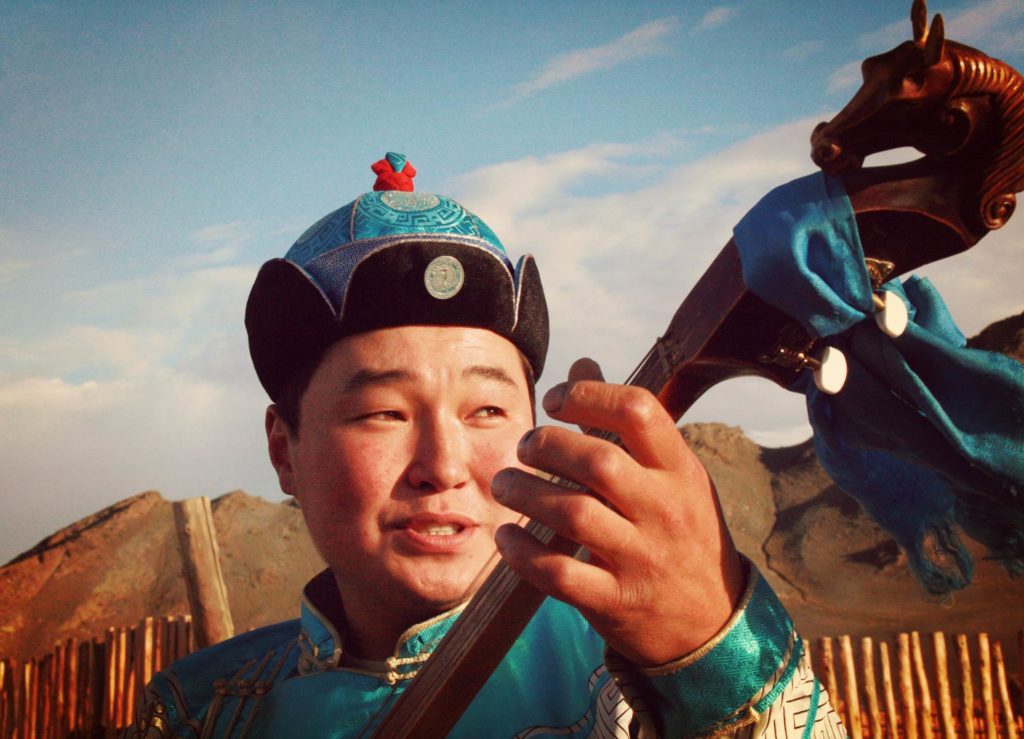Tsengel, the last village in western Mongolia. In the remote foothills of upper Altai Batsükh Dorj (born 1990) perpetuates khöömei (overtone or throat singing) in his community. This remarkable musician perfectly masters the different throat singing styles typical of the Tuvans: khöömei (hurried overtone singing), sygyt (whistled overtone singing), kargyraa (deep overtone singing), ezenggileer (lit. “stirrups”), and borbangnadyr (lit. “rolling”). ). He will sing us about his nomadic culture through mountains and travels, notably by imitating the rhythms of horses and the flow of water.
Biography
Batsükh was born in 1990 in Tsengel, Bayan-Ölgii province in Mongolia. Initiated by Papizan Badar, he learned khöömei with his older brother Bütemj, and listened to recordings. He developed his practice in Touva alongside the famous throat-singers from the Alash and Chirgilchin ensembles. He graduated from the Music College of the Republic of Tuva (Russia). He masters several khöömei techniques, in Mongolian and Tuvan styles: khöömei (hurried overtone singing), sygyt (whistled khöömei), kargyraa (deep khöömei), ezengileer, borbagnadyr; the playing of the igil fiddle and the toshpuluur lute; and violin making, learned from Aldar Tamdyn. Batsükh participates in many festivals and traditional arts competitions, as well as national and regional khöömei competitions.
Discography
- An Anthology of Mongolian Khöömii (Buda Musique/Routes Nomades, 2017)
—
References :
Opéra de Rennes, Opéra de Lille, Musée des Confluences (Lyon), Festival Le Détours de Babel, L’Alhambra et MEG, Genève (CH)…

